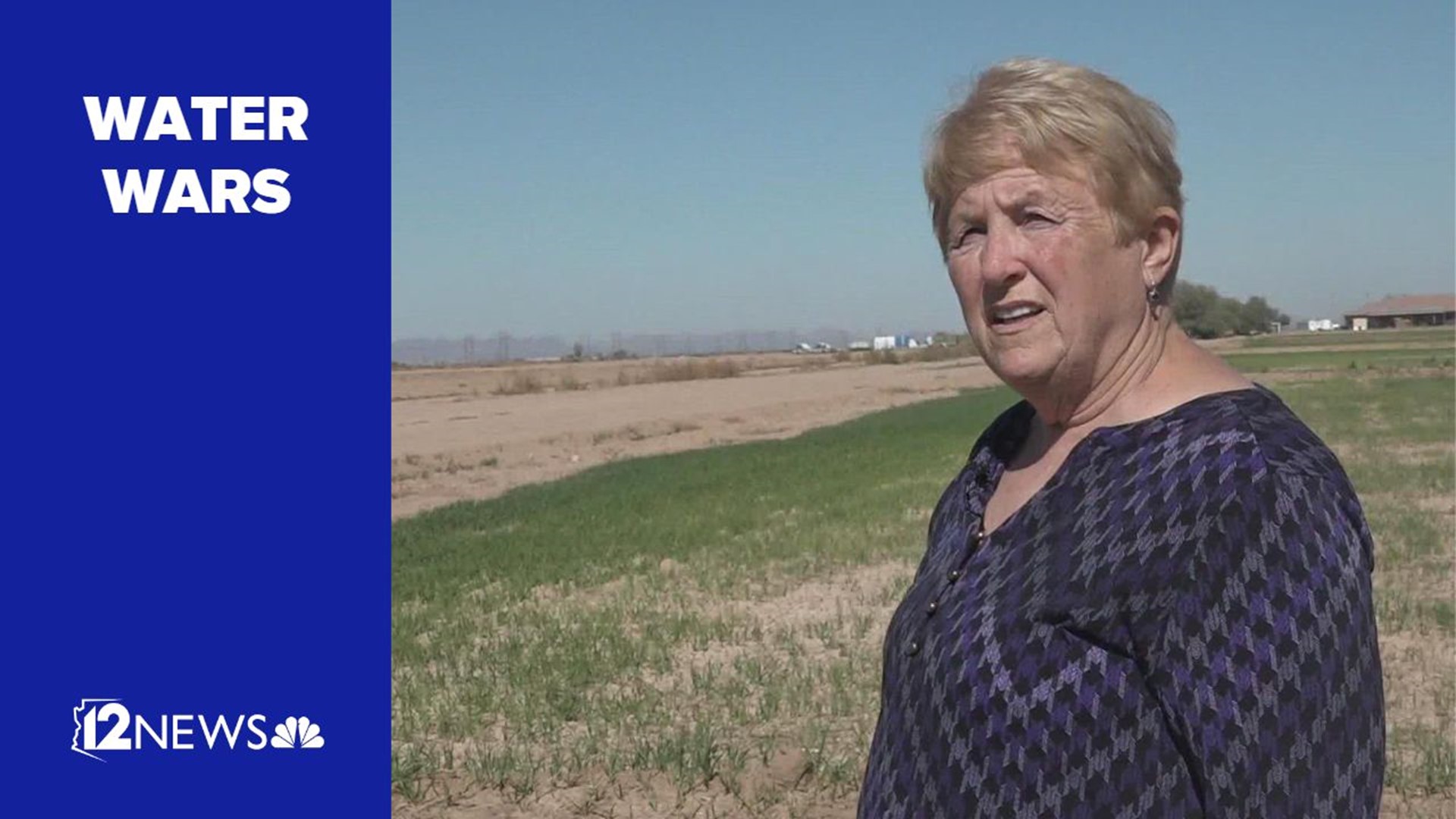ARIZONA, USA — There were numerous politicians and propositions that showed up on Arizonans' 2022 midterm ballots, but Maricopa County residents had something else to vote on: the state's water future.
Five seats on the Central Arizona Water Conservation District were up for election this year, and numerous political newcomers threw their names in the hat to be named a board member. The board maintains and operates the Central Arizona Project (CAP) canal, the state's second-largest source of water.
Of the five seats up for election, three were filled by new faces while the other two were filled by incumbents.
Here's a rundown of the winning candidates:
Ylenia Aguilar

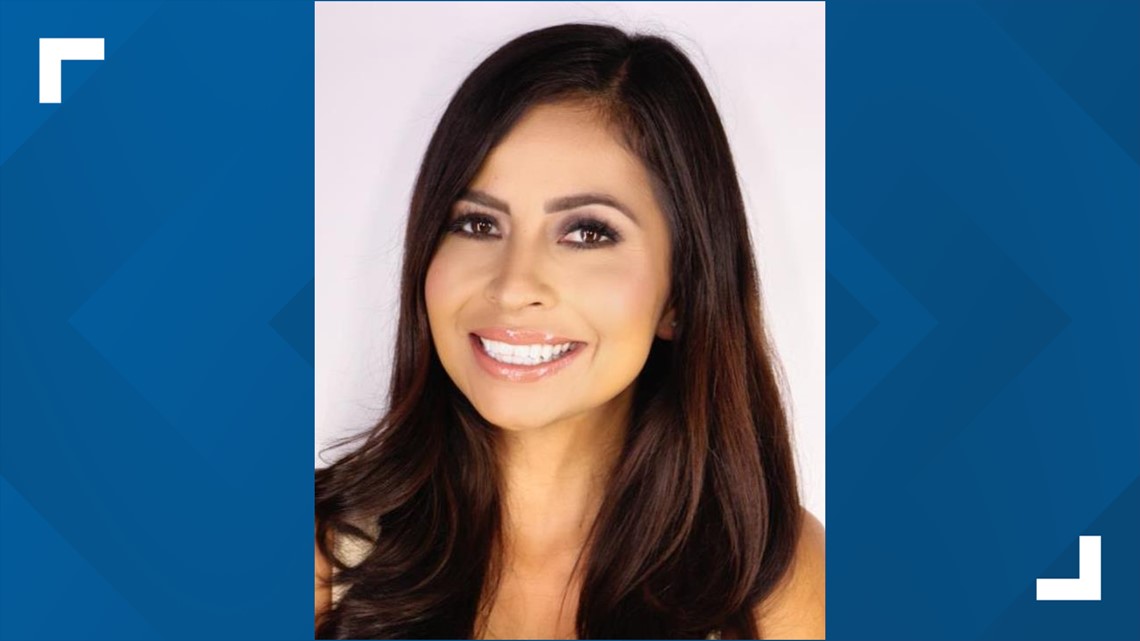
Aguilar is a water advocate and gained U.S. citizenship in 2014, according to her statement on the Citizens Clean Elections Commission website. She voted for the first time in 2016, voting for herself and winning the Osborn School District's board election. She currently serves as the president of the board.
She also works as a manager with SOURCE Global, a renewable water technology company where she focuses on rural areas, school communities and unincorporated areas along the Arizona/Mexico border. She said it was this work that inspired her to run for the board.
"We know that water is sacred and needed in order to survive in Arizona, whether it's access to clean drinking water or water to shower, we know having water is a privilege we take for granted," Aguilar said in an interview with Arizona Municipal Water Users Association (AMWUA). "We need to conserve and protect our Colorado River."
Aguilar's focus is combating the "aridification," or permanent dryness, of the Colorado River system by focusing on at-risk communities, representing Arizona in negotiations with Mexico, and collaborating among Colorado River basin states.
"All Basin States and users of Colorado River water need to work together to come up with long-lasting, enforceable reductions to protect our fragile water supply," she said.
Amanda Monize

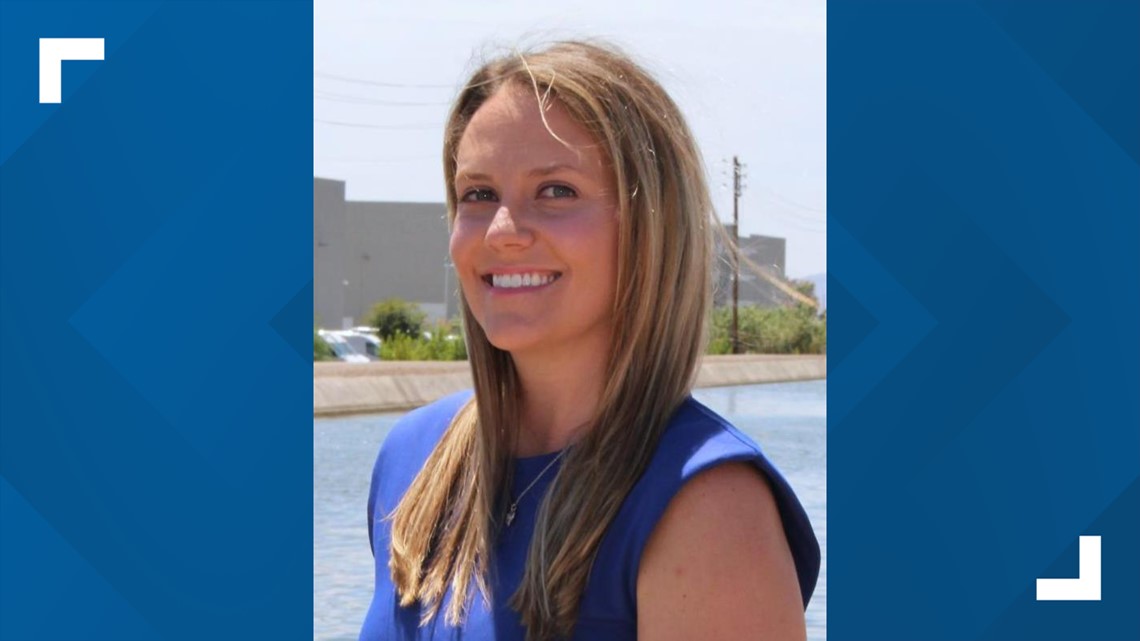
Monize has worked in education for the past 10 years and ran for a position on the board to "provide accountable management and pragmatic leadership for Arizona's economic and environmental future," she told AMWUA in an interview.
Her LinkedIn page lists her previous experience as a Science/STEAM instructional specialist at Washington Elementary School District, an academic adviser at ASU, and a science teacher at Phoenix Union High School District.
Monize signaled in interviews that her focus will be on adjusting water rates, equitably amending the Colorado River Compact, and minimizing the harm towards local agricultural communities in future water restrictions.
"As agricultural lands dry up, developers come in and covert our prestigious agricultural communities into shopping malls and residences. This is bad for our state and our nation," Monize said in an interview with the Arizona Farm Bureau.
"As conditions change regarding water availability and economic stressors, adjustments will need to be made to limit the impact on users whenever financially and environmentally feasible. This most certainly includes Arizona’s agriculture."
Barbara Seago

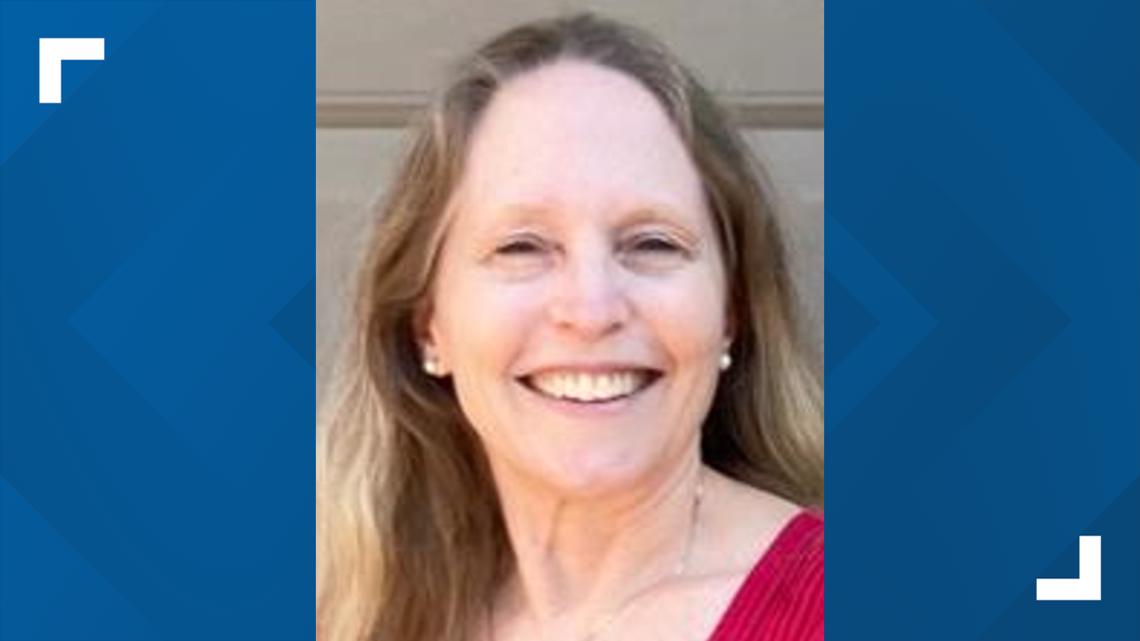
Seago, a St. Louis native, moved to Gilbert in 2005, according to her statement to the Citizens Clean Elections Commission. She is a programmer and analyst by trade, but made the decision to run for the water board after the 2020 election.
"Someone already on the Central Arizona Water Conservation District (CAWCD) board spoke and said that we needed candidates to run," Seago said in the statement. "I thought about it for a couple of weeks and decided that if I don't, who will?"
The election was reportedly the first that Seago had run in. She said her sole focus is lowering taxes for Maricopa County residents.
"I believe in lowering taxes when possible and in making financial decisions that benefit all residents of Maricopa County, not just select groups," Seago said.
She did not answer any questions from AMWUA or the Arizona Farm Bureau.
Alexandra Arboleda (Incumbent)

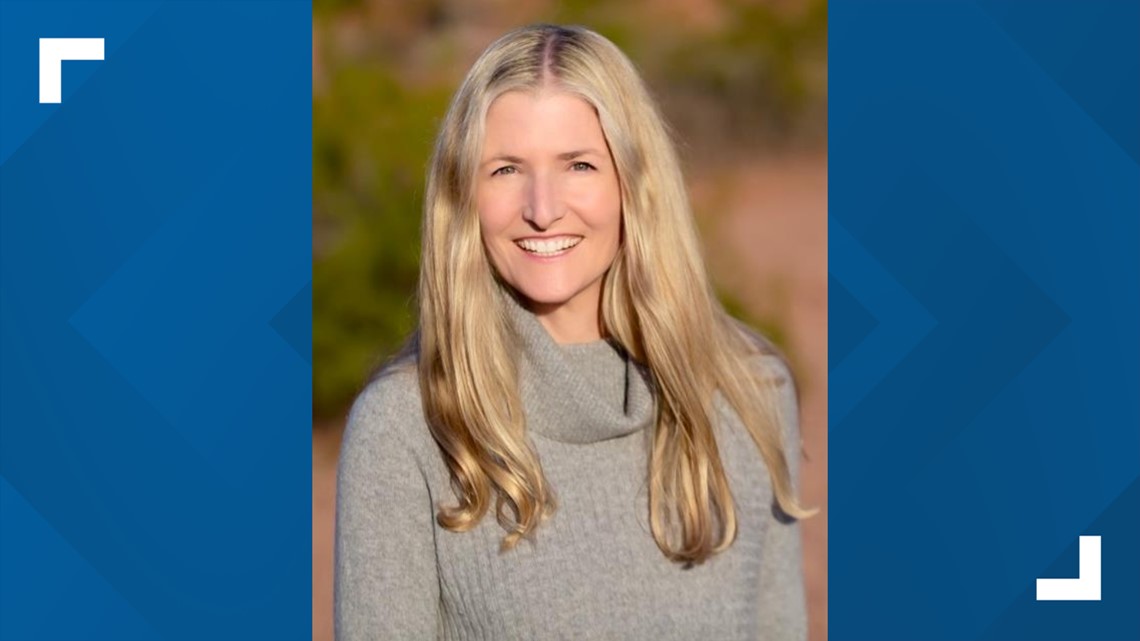
Arboleda has been a CAWCD board member since 2016, serving on the board's executive committee as the board's secretary, according to her statement on the Citizens Clean Elections Commission's website.
She is also serving as chair of the Central Arizona Groundwater Replenishment District and Underground Storage Committee, and as a commissioner on the Arizona Water Banking Authority.
"My extensive background working on Arizona’s water challenges allows me to develop innovative and collaborative solutions for water conservation, efficiency, reuse, and augmentation so that we can continue to thrive in this arid environment," Arboleda said in her interview with AMWUA.
Arboleda thinks the biggest challenge CAP must soon face is the over-allocation of the Colorado River and the reduced availability of water due to climate change and drought. She also views the long-term viability of the CAP resting on the outcome of negotiations between all of the basin states and Mexico.
"I represent irrigation districts, farmers, and ranchers as well as municipalities, developers and others, so I have a balanced understanding of different viewpoints," Arboleda told the Arizona Farm Bureau. "Throughout my term on the CAWCD board, I have made a point of engaging with agricultural stakeholders by attending conferences and meeting with them individually."
Benjamin Graff (Incumbent)

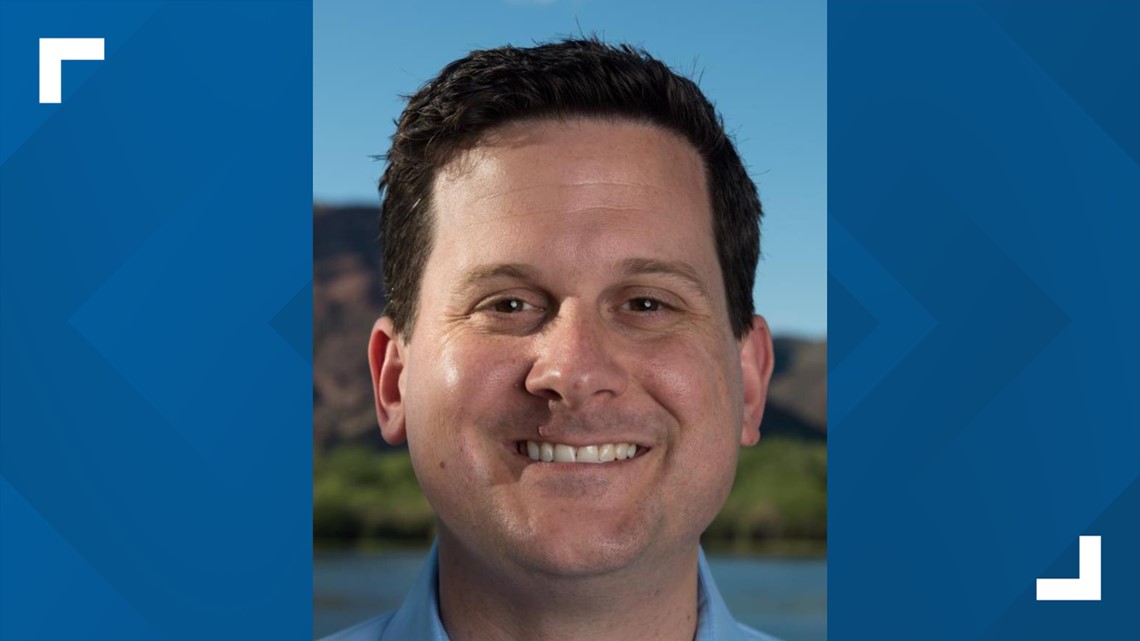
Ben Graff was first elected to the CAWCD in 2016 and has worked with the board on numerous projects since, including serving as the board's chair of the Customer Service Task Force, implementing the Drought Contingency Plan, and diversifying the state's energy portfolio.
"What lies ahead for Arizona is nothing short of the greatest challenge we have faced to sustain the basic needs of our citizens and we need Board members who can build upon what we have accomplished, while embracing new and creative strategies," Graff's statement on the Citizens Clean Elections Commission website said.
Graff sees Arizona's biggest coming challenges relating t negotiations with other basin states and striking a balance between water rates and property taxes. He views the solutions to these issues being found in collaboration among all water users and the board's members themselves.
"Arizona must be strong and present in all negotiations and project the argument that the original priority system is not compatible with the drastic steps needed to address the current water crisis," Graff said. "If it becomes apparent the Basin States will not come to the table to strike a deal, Arizona needs to be willing to push the federal government to use its authority, rather than allow Lake Mead water levels to continue to drop toward Dead Pool."
Water Wars
Water levels are dwindling across the Southwest as the megadrought continues. Here's how Arizona and local communities are being affected.

